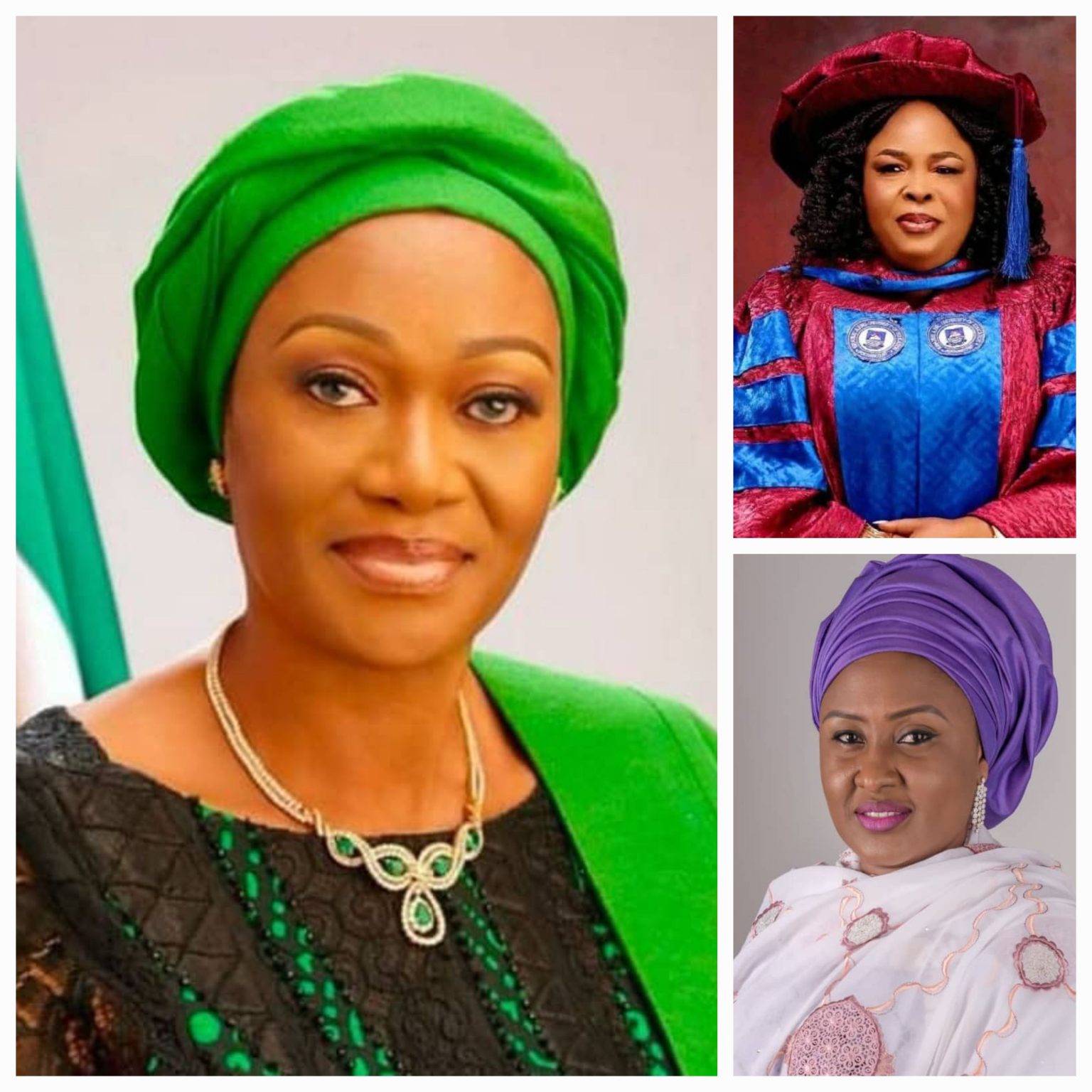By Sakariyah, Ridwanullah
A popular novelist, Chimamanda Ngozi Adichie, has been credited with a wise saying about the girl child, stating that, “We teach girls to shrink themselves, to make themselves smaller. We say to girls, You can have ambition, but not too much.”
This resonates with the story of Nigeria’s First Ladies, the women who have often expanded their roles beyond the shadows of power, turning ceremonial positions into platforms for influence, advocacy and change. In Nigeria’s political history since independence in 1960, the office of the First Lady holds no constitutional mandate, yet it has evolved from a symbolic spousal role to one of significant influence.
Early figures like Flora Azikiwe were largely ornamental, but by the 1980s, pioneers such as Maryam Babangida transformed it through initiatives like the Better Life for Rural Women program, which empowered millions through education and economic projects. Despite facing scrutiny in a patriarchal society, these women have shaped public policy on health, women’s rights, female education, and youth development, often to navigate the complex power dynamics in the military and democratic eras. This reflective profile examines nine living former First Ladies as of October 2025, and chronicles their journeys, legacies, and post-tenure lives, while drawing parallels to the current era.
READ ALSO: Top Five Nigerian Record Label Titans Shaking the Nigerian Music Industry in 2025
Victoria Gowon (First Lady, 1966–1975)
Born on August 22, 1946, in Zaria, Victoria Gowon is known as the younges Nigerian First Lady. She was trained as a nurse before marrying General Yakubu Gowon in 1969 amid the Nigerian Civil War. As the youngest First Lady at 22, her background in healthcare informed her low-key but supportive role that focused on welfare for war-affected families and promoting national unity. She avoided overt politics, with an emphasis on humanitarian aid through visits to orphanages and hospitals, which helped humanize the regime during turbulent times.
Controversies were minimal, even though the war’s hardships drew indirect criticism. After Gowon’s 1975 ousting and exile, Victoria returned to Nigeria in the 1980s with a view to pursuing further her education and quiet philanthropy.
As of 2025, at 79, she remains active in advocacy, speaking at events like the 2024 Renewed Hope Initiative, where she urged women to unite for leadership roles, stating, “A female president is possible if women unite.” She also featured in her husband’s 90th birthday celebrations in 2024, where she stood as an emblem of enduring resilience. Her legacy lies in quiet diplomacy, inspiring younger advocates.
Hafsatu Ajoke Muhammed (First Lady, 1975-1976)
Born on May 23, 1941, in Kano, Ajoke Muhammed is one of the oldest Nigerian First Ladies who are still alive. She was trained as a dental therapist before marrying General Murtala Muhammed in 1963. Her brief tenure followed Gowon’s overthrow, during which she maintained a subdued profile amid her husband’s anti-corruption reforms. Drawing from her healthcare roots, she initiated early conservation efforts, planting gardens at Dodan Barracks and fostering interest in indigenous plants.
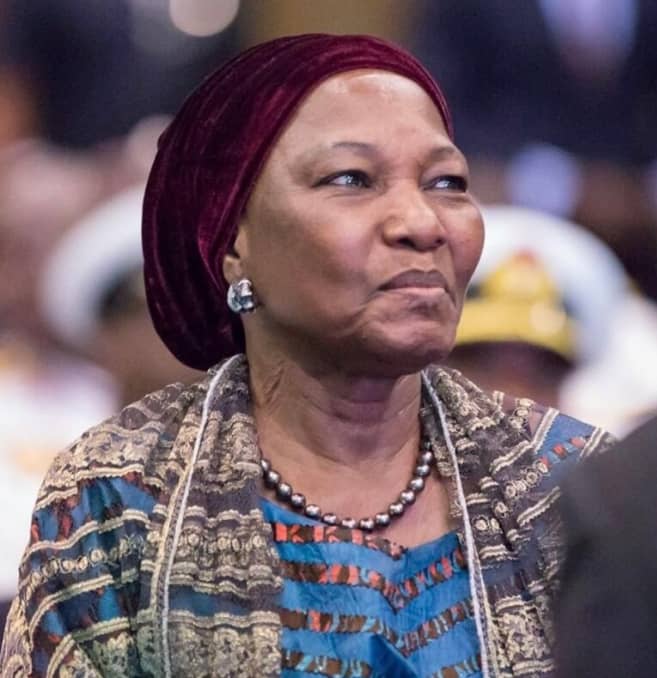
No major controversies marked her time. However, the regime’s abrupt end in assassination shadowed it. After 1976, Ajoke focused on family and botany, founding the Murtala Muhammed Foundation and the Gwandu Emirate Botanic Garden to preserve Nigeria’s flora. In 2023, at 82, she was highlighted in media for her conservation work, emphasizing environmental education as a tool for national development.
As of 2025, she continues low-profile advocacy, with reflections in outlets like The Boss Newspapers praising her as a “consequential matriarch” at 84, blending personal loss with public service.16a4ec Her enduring contribution is promoting sustainability in a resource-rich nation.
Maryam Abacha (First Lady, 1993-1998)
Maryam Abacha, wife of the late General Sani Abacha, is one of Nigeria’s most famous First Ladies. Her years in office were controversial but transformative. She founded the Family Support Programme (FSP) and later the Family Economic Advancement Programme (FEAP), initiatives that aimed at promoting women’s empowerment and poverty reduction.
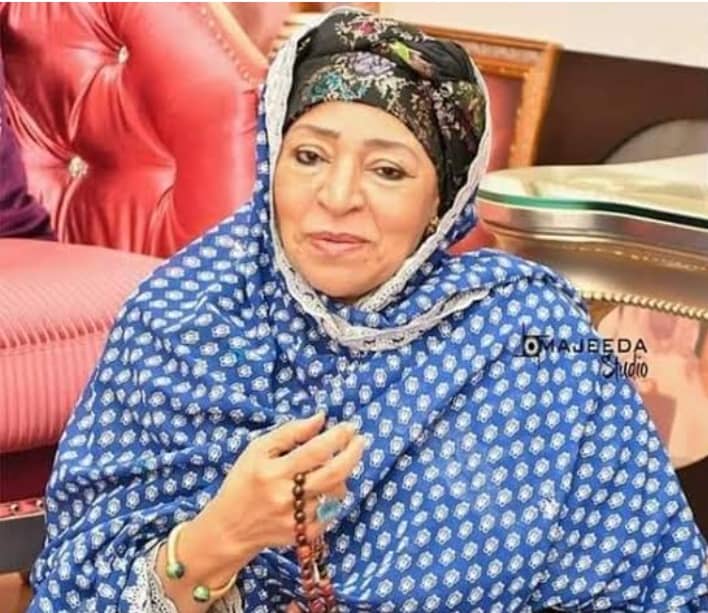
BBC Africa reported that Maryam Abacha “used her position to build schools, healthcare facilities, and social welfare programmes that benefited thousands of women and children across Nigeria.” Even critics who questioned her husband’s regime acknowledged her organizational impact.
After her husband’s sudden death in June 1998, she largely withdrew from public life, and started focusing on her family and the “Maryam Abacha Foundation”. She currently lives between Kano and Abuja. As of 2025, she remains a matriarchal figure and one of the longest-surviving First Ladies of the military era.
Justice Fati Lami Abubakar (First Lady, 1998-1999)
Justice Fati Lami Abubakar, wife of former Head of State General Abdulsalami Abubakar, is one of Nigeria’s most respected First Ladies. Being a distinguished jurist from Niger State, she became the First Lady in June 1998 following the death of General Sani Abacha and her husband’s succession. Despite serving for just about eleven months, she left a legacy of humility, intellect, and service.
Unlike many who occupied the position with ostentation, Justice Fati Lami chose to operate quietly yet effectively. She founded the Women’s Rights Advancement and Protection Alternative (WRAPA), a non-governmental organization that has continually served as one of Nigeria’s strongest advocates for gender equality and legal empowerment of women.
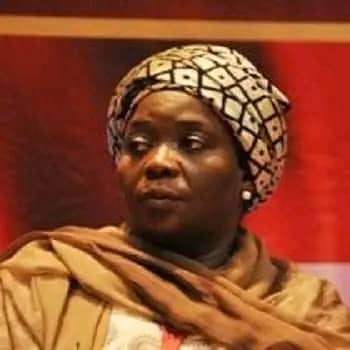
As a woman from Northern Nigeria (a region where traditional and religious boundaries often constrain women) her accomplishments as a lawyer, jurist, and later Chief Judge of Niger State High Court are exceptional. She once said in an interview that “empowering women with education and justice is the most enduring gift any nation can give itself.”
Even after leaving Aso Rock, Justice Fati Lami continued her advocacy quietly, resisting the temptation of political visibility. She is often described as “Nigeria’s quiet achiever”, a model for future First Ladies who wish to combine intellect with humility.
Turai Umaru Musa Yar’Adua (First Lady, 2007–2010)
Another impactful Nigerian First Lady who is still alive is Hajia Turai Yar’Adua. She is recognised as one of the most reserved but influential women to ever hold the title of First Lady. She was known for her gentle demeanour, religious devotion, and behind-the-scenes influence during her husband’s presidency.
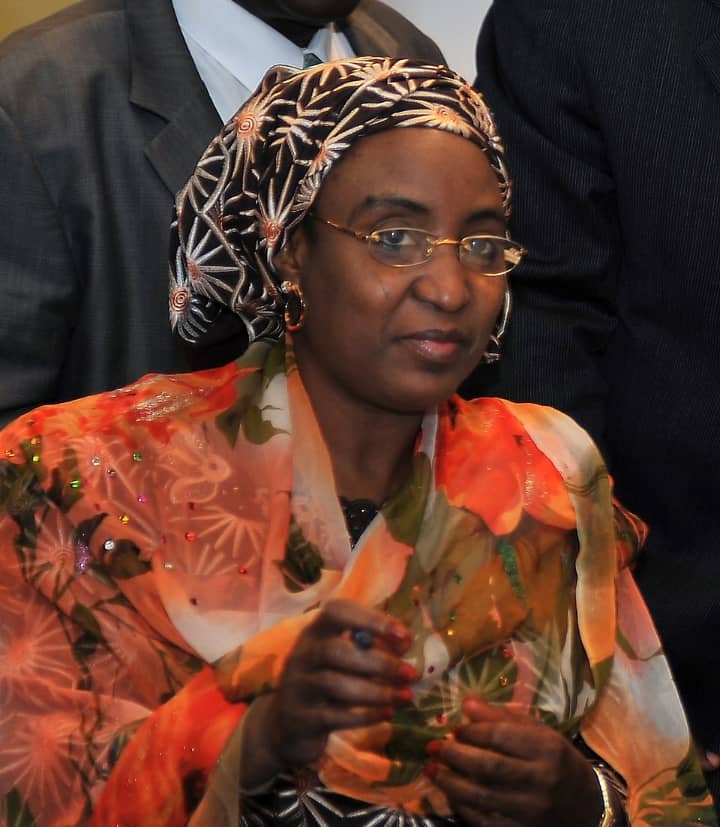
According to a report by Premium Times, “Turai Yar’Adua was the quiet architect of her husband’s humanitarian policies.” She established the Women and Youth Empowerment Foundation (WAYEF), focusing on health, education, and youth employment.
During her tenure, she was credited for mobilising support for free cancer screening across northern Nigeria. After her husband’s death in 2010, Turai withdrew completely from political life, preferring a private life in Katsina. Her foundation, however, still operates at reduced capacity, providing scholarships and community health support.
Her life reminds Nigerians that influence does not always need a microphone; sometimes, it speaks in gentle impact.
Patience Jonathan (First Lady, 2010–2015)
Next on the list is Dame Patience Jonathan, wife of former President Goodluck Ebele Jonathan. She is remembered for her loud charisma, emotional public speeches, and undeniable influence during her husband’s presidency. She was the first woman in Nigeria’s history to serve as both a state First Lady (Bayelsa) and national First Lady; that’s a dual record that speaks to her longevity in public life!
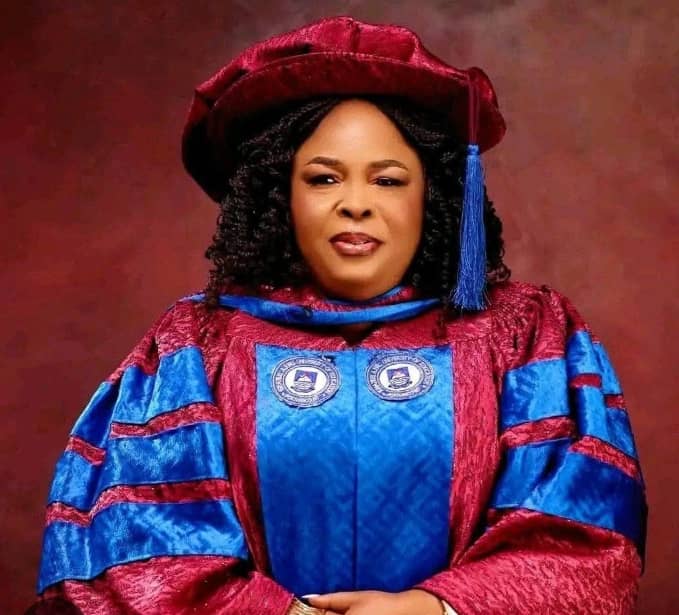
She founded the Women for Change and Development Initiative (W4CDI), which aimed at increasing female participation in politics and governance. She was also a strong voice in humanitarian causes, especially in the campaign to rescue the Chibok girls in 2014.
Her famous phrase, “Na only you waka come?” which was uttered during an emotional televised meeting became part of Nigeria’s political pop culture. Yet beyond humour, she showcased a high level of compassion and courage, particularly during periods when she battled severe health challenges abroad.
Vanguard Newspapers reported that Patience Jonathan redefined the role of Nigeria’s First Lady through a blend of activism, visibility, and motherly assertiveness.
Today, she lives quietly between Abuja and Bayelsa, still active in philanthropy and church affairs.
Aisha Muhammadu Buhari (First Lady, 2015–2023)
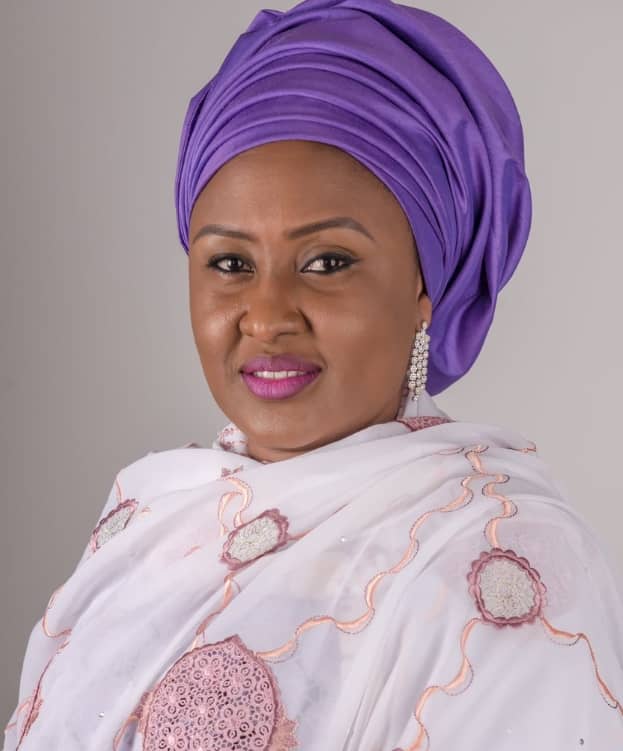
Aisha Buhari, wife of former President Muhammadu Buhari, is one of the most outspoken First Ladies Nigeria has ever had. She came into prominence not as a silent supporter but as a reformist voice within the corridors of power.
What is most noteworthy about her is her outspokenness on issues such as insecurity, healthcare, and women’s rights set her apart from her predecessors. In 2016, she made international headlines when she publicly criticised her husband’s administration, saying she might not support his re-election if things did not change.
Aisha Buhari launched the Future Assured Foundation (FAF), focusing on maternal and child health, women’s empowerment, and nutrition. She also helped revive the First Lady’s Wing (FLW) of the Aso Villa Clinic in order to ensure more access to quality health services.
According to a report by The Guardian Nigeria, Aisha Buhari combined modern advocacy with political insight, embodying the rise of the confident African woman. Hitherto, she still stands as a vocal advocate for women and youth participation in governance, and even after leaving office, she continues to attend global conferences on women’s health and development.
Remi Tinubu (First Lady, 2023–Present)
Senator Oluremi Tinubu, wife of President Bola Ahmed Tinubu, is Nigeria’s current First Lady and a prominent political figure in her own right. Before becoming First Lady, she served as the Senator representing Lagos Central for three consecutive terms (2011–2023), during which she sponsored several key bills on women’s rights and education.
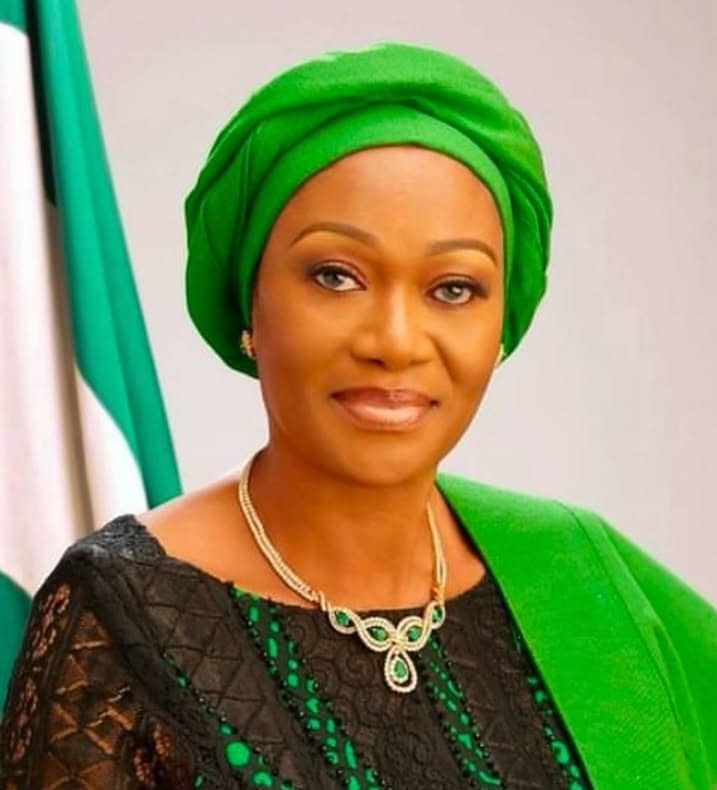
As First Lady, she launched the Renewed Hope Initiative (RHI), a social empowerment project aligned with her husband’s economic agenda. The programme focuses on empowering women, supporting persons with disabilities, and assisting farmers across the federation.
Remi Tinubu is also a pastor with the Redeemed Christian Church of God (RCCG) and continues to combine her faith with public service. In an interview with Channels Tv, she stated that her mission as First Lady “is to renew hope by action, not by rhetoric.”
Her approach blends discipline with devotion, a reflection of her long years in politics and faith-based service.
READ ALSO: FG unveils cancer immunotherapy project, enrols first Nigerian patient
These living First Ladies embody Nigeria’s evolving gender roles, from survival in military eras to democratic advocacy. Their enduring impact, through foundations and programs offers, bridges to enterprise amid precarity. As potential mentors in politics or philanthropy, they remind us, in Adichie’s voice, of ambition’s power. Policymakers should support their legacies so as to ensure that future generations inherit empowered narratives.


